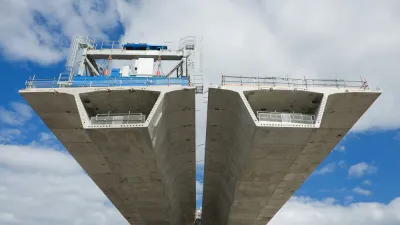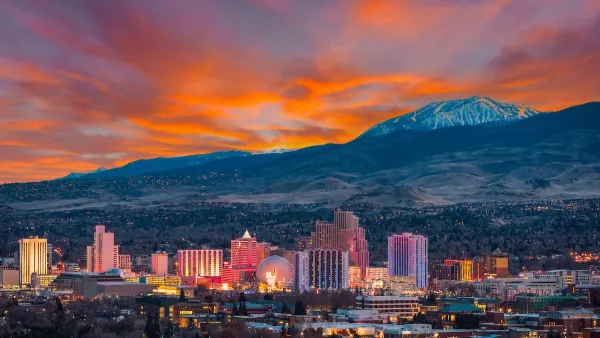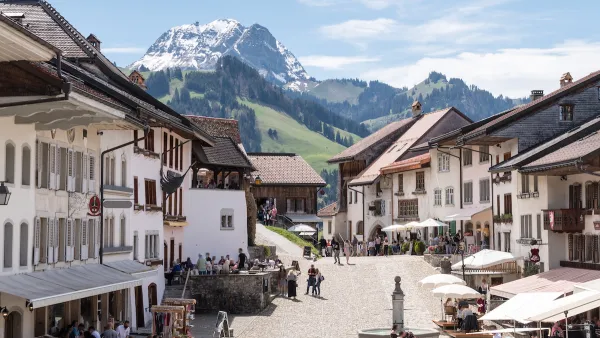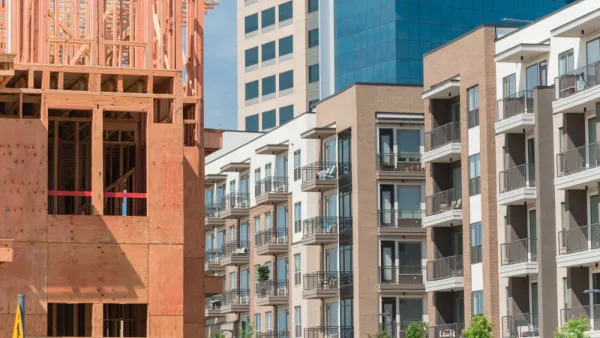Two economists discuss how specific kinds of deregulation could speed up growth. They emphasize planning issues: local overregulation of development and the high cost of infrastructure, among others.

In this piece, the follow-up to a debate on how government can promote growth, economists Tyler Cowen and Noah Smith debate how the American economy can be made more efficient and productive. They advocate for looser regulations and labor laws, but they also touch on land use policy and infrastructure.
Says Smith, "I think the two biggest and most obvious things to address are land-use regulation and occupational licensing. There's an increasing recognition that policies to prevent dense development are holding cities back from their economic potential."
Smith also favors infrastructure investment. "Repairing our existing infrastructure gets the highest returns, of course. But increased investments in new things like self-driving car infrastructure, smart electrical grids and faster broadband seem like they could also pay dividends."
Cowen pushes even harder for deregulation. "We couldn't have built today's energy infrastructure with today's regulations, so how are we to manage the energy infrastructure of the future? Less NIMBYism for wind power is step one of a thousand we could make. Or take fracking. It has made energy cheaper, created jobs and helped lower carbon emissions. And yet it remains a legally fraught enterprise."
Smith agrees that we have made it very difficult to build new infrastructure, but doesn't assign blame to labor laws, as Cowen does. "Regarding infrastructure costs, I doubt that unionized labor is a big part of our problem, since Europe has stronger unions but much cheaper costs. It's probably due more to our inefficient contracting process."
FULL STORY: Debating the Supply Side of Growth

National Parks Layoffs Will Cause Communities to Lose Billions
Thousands of essential park workers were laid off this week, just before the busy spring break season.

Retro-silient?: America’s First “Eco-burb,” The Woodlands Turns 50
A master-planned community north of Houston offers lessons on green infrastructure and resilient design, but falls short of its founder’s lofty affordability and walkability goals.

Delivering for America Plan Will Downgrade Mail Service in at Least 49.5 Percent of Zip Codes
Republican and Democrat lawmakers criticize the plan for its disproportionate negative impact on rural communities.

Test News Post 1
This is a summary

Test News Headline 46
Test for the image on the front page.

Balancing Bombs and Butterflies: How the National Guard Protects a Rare Species
The National Guard at Fort Indiantown Gap uses GIS technology and land management strategies to balance military training with conservation efforts, ensuring the survival of the rare eastern regal fritillary butterfly.
Urban Design for Planners 1: Software Tools
This six-course series explores essential urban design concepts using open source software and equips planners with the tools they need to participate fully in the urban design process.
Planning for Universal Design
Learn the tools for implementing Universal Design in planning regulations.
EMC Planning Group, Inc.
Planetizen
Planetizen
Mpact (formerly Rail~Volution)
Great Falls Development Authority, Inc.
HUDs Office of Policy Development and Research
NYU Wagner Graduate School of Public Service





























